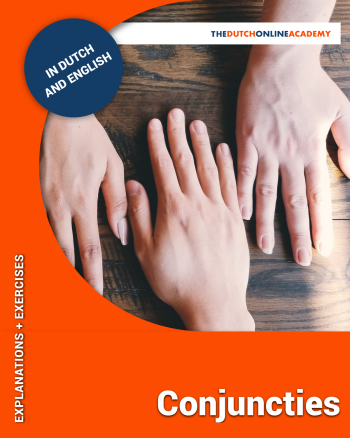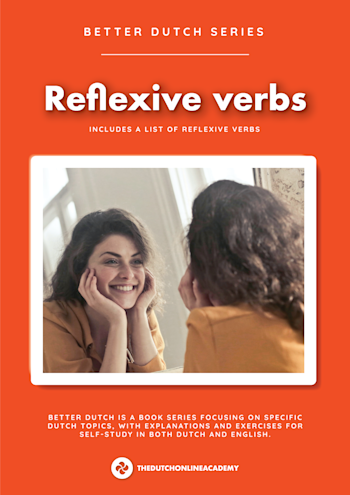Learn the theory
The difference between WANT and OMDAT in Dutch
Although both conjunctions can be translated as "because", there are a few differences.
- The word order: after omdat you'll use a subordinate clause (verbs go to the end)
- Ik ga naar huis, omdat ik moe ben.
- Ik ga naar huis, want ik ben moe.
2. There is a very subtle difference between omdat and want. You can use them synonymously in almost all sentences, but very occasionally not. Want is in some way more subjective, it gives an interpretation of the writer/speaker, while omdat gives a more objective reason.
An example:
- Ze is vrolijk, want ze lacht. She is happy and I can tell she is happy because she is smiling.
- Ze is vrolijk, omdat ze lacht. She is happy, because she is smiling. The smiling causes her happiness.
Important: It is hard to think of an example like this. It's rare. In almost all cases you can use both want and omdat. So if you are just starting using these conjunctions, don't focus too much on this difference.
3. You cannot start a sentence with want, but you can start a sentence with omdat. So when someone asks you a question, you usually use omdat in your answer, because you don't always repeat the question.
- Waarom ga je niet naar het feest? Omdat ik ziek ben. Ik ga niet naar het feest, want ik ben ziek.
Practice with exercises
Do you want to practice with want en omdat? Fill in want or omdat in every sentence.
comments
Login to leave a comment
info@thedutchonlineacademy.com
Ik hoop dat onze website nuttig is!


![Learn Dutch with The double infinitive in Dutch [list of auxiliary verbs included]](https://images.ctfassets.net/f8l4gy5qxe00/7fpaN2iBE3h1xS7LRL8c0h/3bbebedc080cbf7eece73424c8e3918f/The_double_infinitive.png?w=350&h=495&q=50&fm=png)
